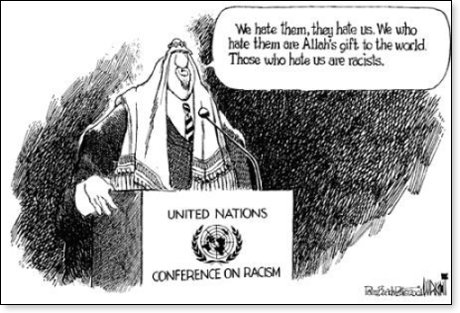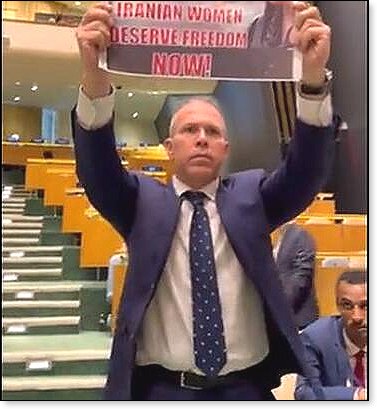
Victor Sharpe

For me, when I was but at the age of fourteen, the events that occurred on November 2, 1956 affected me greatly.
It was while at school in England that word of a British and French attack upon Egypt was headline news. The full import of what was to subsequently change so much in the world only emerged during the next days and weeks.
New York, on November 2, 1956, was a Friday and the weather was cool. The United Nations General Assembly was in emergency session. In London, it was cloudy and in the British Parliament the leftwing opposition party was challenging the policy of the Conservative Prime Minister.
In Budapest, Hungary, it too was cool and cloudy but Soviet tanks now ringed the capital as the Hungarian people’s month-long revolt against Soviet Russian occupation teetered on the edge of victory or defeat. I remember to this day seeing those vivid pictures of Hungarian resistance fighters—their faces transformed into hideous masks of agonizing pain as Soviet bullets tore away their lives.
Friday, November 2, 1956, was one of those days when history seemed to balance itself on a knife edge and the destinies of nations were poised ready to fall either way. It was a day when great forces were arrayed against each other. Indeed, great causes were at stake. The people of Hungary, on that day, stood within reach of freedom. I was now following the news intently and thus began for me a practice which avidly has continued to this day.
The Soviet hold on so many countries after the end of World War II appeared to be faltering, nearer a collapse than at any time since the brutal takeover of those nations. In the Middle East, the brassy edifice which Egypt’s dictator, Gamal Abdul Nasser, had erected to further pan-Arab and Islamic power against the West was likewise tottering. The French and British were putting their 19th century imperialist power and reputations as the world’s policemen on the line in a great new test of 20th century reality.
But it was to be on that November 2, 1956, that matters changed dramatically. Nasser had earlier nationalized the Suez Canal in July 1956 and blockships and an Egyptian frigate had been deliberately sunk to prevent free passage through the world’s economic lifeline. British and French naval forces were then approaching the canal from both ends. RAF and French aircraft were attacking Egyptian forces. Suez was crowding out the news from Hungary on that November 2nd 1956.
Nasser had proclaimed himself Military Governor General of Egypt and began claiming victory over Britain, France along with Israel. Nasser had been boasting of his intention to destroy Israel and for many years had been funding and organizing Arab terrorist (fedayeen) gangs to attack Israeli civilians from the Egyptian occupied Gaza Strip and the Sinai Peninsula. From 1951 to 1956, increasing numbers of Israeli farmers and villagers had been murdered in incessant terrorist raids with Israeli casualties nearing 1,000. Then Nasser sealed off the Israeli port of Eilat by blockading the Gulf of Aqaba. Thus he strove to impose a crippling economic stranglehold upon Israel’s very survival.
The Israeli response was to launch what was called the Sinai Campaign or the 100 Hour’s War. Israeli forces entered the Sinai to confront the advancing Egyptian armies while Britain and France attacked Port Said.
But angry comments eventually sounded in elements of the American press. President Eisenhower was restrained in his comments about the Middle East imbroglio but his Secretary of State, Foster Dulles, was calling the British and French attempt to curb Nasser’s aggression “stark imperialism” and even “trickery and deceit.”
The later upshot was that Dulles eventually forced upon Britain and France, along with Israel, ignominious retreats while leaving Nasser still in aggressive power. This tragically allowed for a continuation of Middle East violence and misery along with Nasser’s fomenting of the subsequent 1967 Six Day War.

It is a dreary fact that the subsequent years of turmoil has inevitably allowed the emerging rise and power of that most immoral and hypocritical so-called Temple of Peace, the United Nations. A place where the worst of the worst are now given freedom to spew their individual and collective odium. This has led to what now confronts a tottering free world – namely a truly dystopian World Government and the imposition of U.N. Rule.
The U.N has never played fair with the embattled Israeli nation. As a result of undue pressure from both the United Nations and the U.S Administration, Israeli forces withdrew from the Sinai in March 1957 with the assurance that Egyptian military forces would not be allowed to return. But Egypt illegally moved her army back into Gaza within 48 hours of the Israeli withdrawal and continued to allow and foment terrorism – this with United Nation’s approval.
And now, some 67 years after that day and month that had changed the world, a pair of events this week graphically illustrated a striking symmetry in the moral bankruptcy of the United Nations, a global body ostensibly dedicated to peace and justice.
The British columnist and astute surveyor of world events, Melanie Phillips, wrote this in a recent article.
“The UN General Assembly gave a platform to Iran’s president Ebrahim Raisi, whose terrorist regime has been in a state of self-declared war against the free world for more than four decades. Yet while rolling out the red carpet for this tyrant, security officials frog-marched Israel’s Ambassador to the UN, Gilad Erdan, out of the hall. He was already in the process of walking out after holding up a sign reading “Iranian women deserve freedom now” with a picture of Mahsa Amini, the 22-year-old Kurdish Iranian woman who died in the custody of Iran’s “morality police” after being arrested for not wearing her hijab in the prescribed manner.
“Ambassador Erdan was detained by security officials for several minutes outside the chamber before being released. He protested: “It should not be possible for a vile murderer who calls for the destruction of Israel and America to be given a platform here at the UN.
“Not only did the UN grant a genocidal monster like Raisi, known as the ‘Butcher of Tehran” the status of a world statesman, but it treated the ambassador of the country that Raisi plans to destroy like a common criminal.

Israel’s UN Ambassador Erdan pleading for freedom for abused Iranian women.
“This fits the UN’s long record of sanitising, condoning or promoting human rights abusers while singling out democratic Israel for a campaign of harassment and demonisation.”
Given the Iranian regime’s record in jailing and torturing dissidents, hanging homosexuals, oppressing women while killing untold thousands of protesters, it is beyond belief that in November Iran is to chair the UN Human Rights Council’s Social Forum.
I am reminded of an ancient Jewish and rabbinic saying which encapsulates immense wisdom even as the United Nations and so much of the world sinks ever deeper into a pit of moral turpitude. Here is that achingly true saying that the United Nations needs to embrace so badly.
"He who is kind to the cruel ends by being cruel to the kind."
© Victor SharpeThe views expressed by RenewAmerica columnists are their own and do not necessarily reflect the position of RenewAmerica or its affiliates.
















